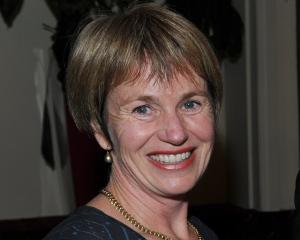A seventh dairy company looks set to be established in the South Island with news a Christchurch investment firm is seeking resource consent to build a factory between Glenavy and Studholme, in South Canterbury.
New Zealand Milk director Tim Howe said a positive reaction from farmers in North Otago and South Canterbury had encouraged it to not only apply for resource consent but to increase the capacity of the proposed plant from an 8-tonnes-an-hour drier to a 12-tonnes-an-hour unit producing skim and whole milk powder for export.
It hoped to have the plant operating in time for the 2011-12 milking season.
"The level of support has given us the confidence and will to proceed with a Resource Management Act application. We would only be doing that if we were comfortable and had the support to fill the plant," he said in an interview.
The project was initially estimated to cost $100 million, but with the increased capacity, Mr Howe said the cost would now be "north of $100 million".
He had confidence investors still viewed dairy companies as attractive despite tight financial markets and it was intended to fund about half the cost from investors and half from debt.
"In the current environment, it would be one of the worst in which to raise money. But one of the few things I believe you can raise money for is the dairy sector."
OceanPartners, a merchant bank, adviser and private investment office, has formed New Zealand Milk and appointed former Meridian Energy chief executive Keith Turner and former National Party leader and Reserve Bank governor Don Brash to its board.
Mr Howe said the ownership structure of New Zealand Milk would incorporate various aspects of dairy companies operating in New Zealand - co-operative, contracted supply and horizontal integration.
Milk would be supplied from a mix of farmer supplier-investors and from company-owned farms, which would underpin the sustainability of the venture and make it more attractive for public listing at a later date.
OceanPartners has announced a $100 million agricultural fund to buy farm land.
Farmer shareholding would not be directly linked to the amount of milk they supplied as was required by the Fonterra Dairy Co-operative, but the shares would give them a stake in the company and a slice of any profits generated.
Mr Howe said South Canterbury was chosen because of the potential for dairy farm growth, as irrigation was expanded in the area,and because farmers there had been receptive to a different form of dairy company ownership to the traditional co-operative.




